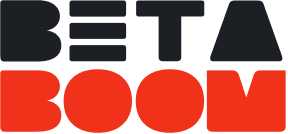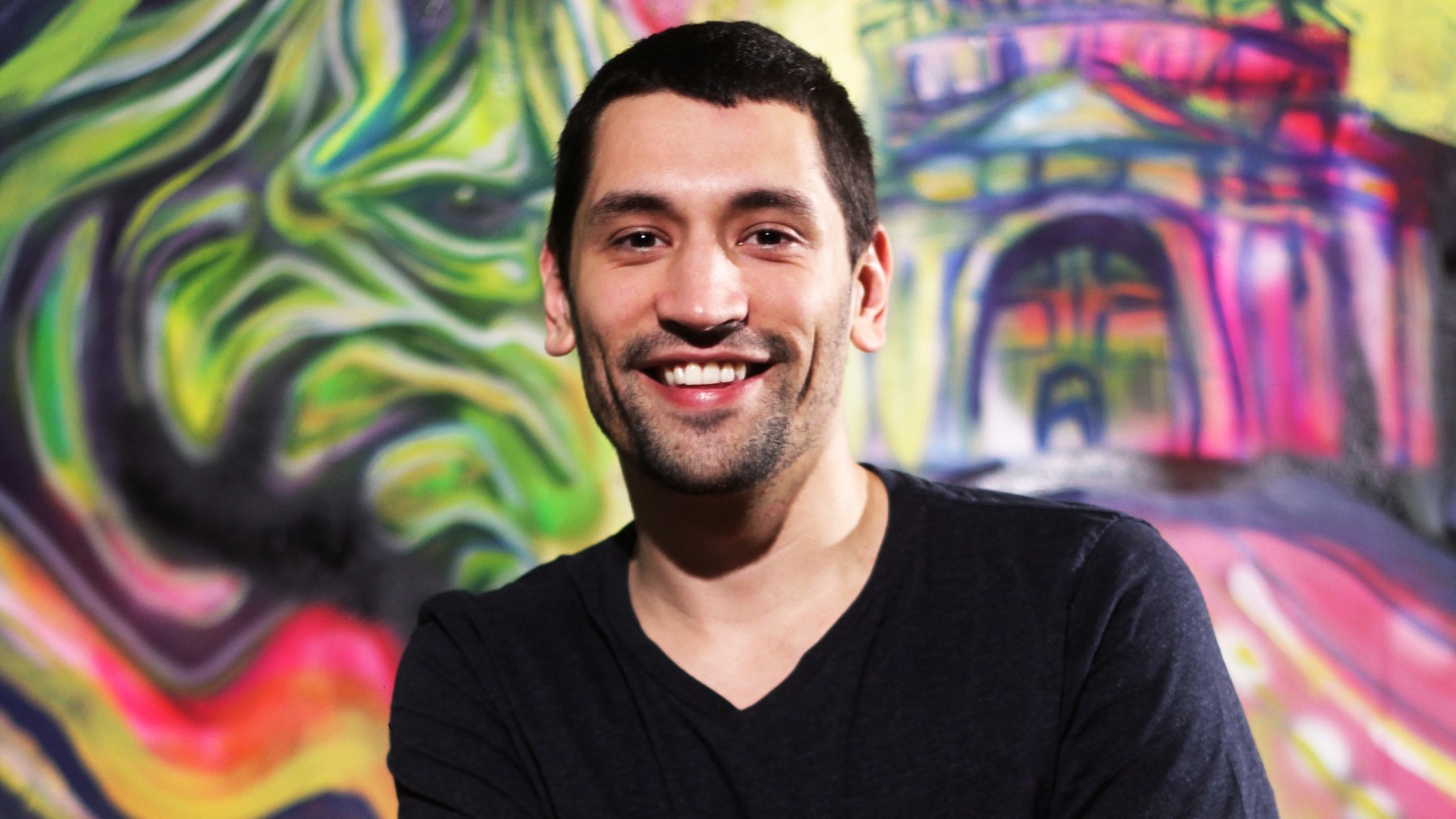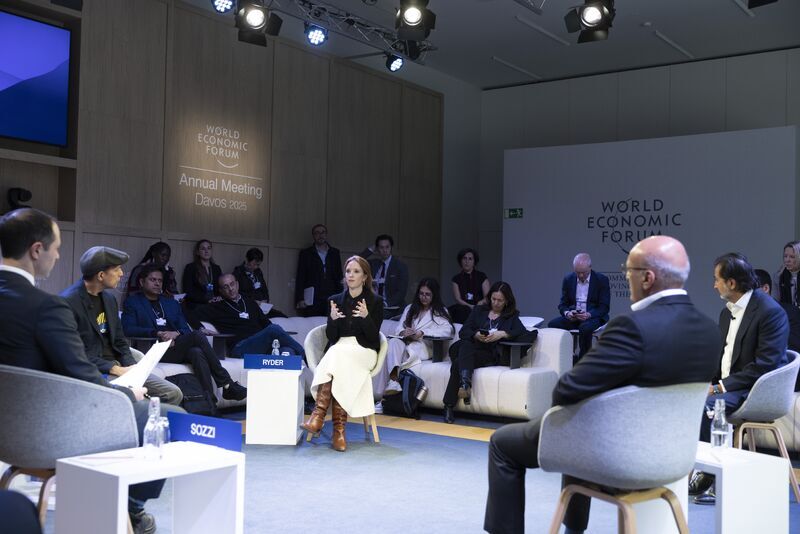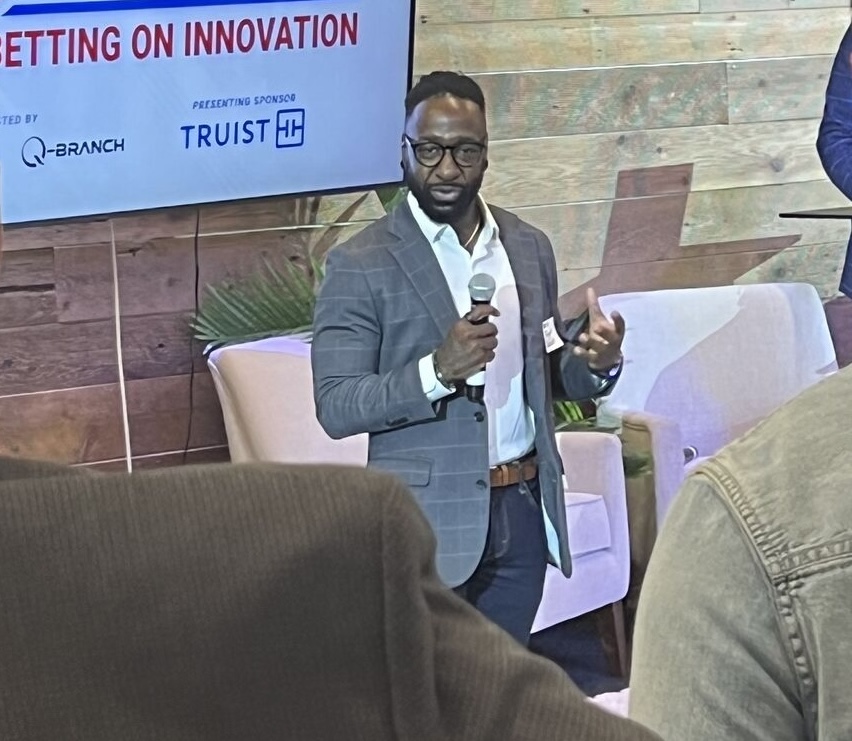Eric Mosley, Co-Founder and CEO of the human capital management platform Workhuman, isn’t afraid to be loud and blunt about his startup’s philosophy:
“Enough bureaucracy. Enough soul-crushing administrative software. Enough indifference to our most human needs. It’s time to truly connect people and celebrate their humanity, which is the key to great performance. It’s time to make work more human!”
Mosley sees Workhuman as dismantling the outdated HR processes for a new, human-centric model. By leveraging AI-powered recognition and authentic human connection, it becomes easier to build community and fuel purpose.
Since 1999, he has been able to show the VC world why investment in people is worth it, reaching over a $1 billion valuation in 2024, becoming Ireland's first and only unicorn.
The slow burn of Workhuman's current status comes from the steadfast belief in the resilience of the human spirit–something that has shaped him at every stage of business and life.
Toxic Beginnings
The humble surroundings of Mosley’s childhood home in Dublin, did not reflect the toxic realities within its walls. A pivotal moment came when he was 7 years old, and he could only helplessly watch as his father, two suitcases in hand, abandoned his family.
“[I]t’s been tattooed on my brain, that image,” Mosley told Brené Brown in 2020 on the Dare to Lead podcast, adding that the heavy social stigma of divorce left him and his sisters with deep shame. “I went from age 7 to age 40, and yet you end up with a drive to break out of that and never go back.”
This wasn’t helped by their economic struggles, which his mother was now forced to shoulder alone.
“People often say, “Oh, we were poor but we didn’t know it,”’ he continued. “Well, I knew it at the time, and I knew I never wanted to go back there. So it’s one of the things that drove me to do more and escape and it was something that has pushed me my whole life.
While his ultimate goal was always to break into the business sector, his escape plan began with securing an electronic engineering degree at Trinity College Dublin. Diploma in hand, he ran halfway across the world, landing in Boston, where he still resides 15 years later.
His early business idea was for a global gift-giving service. When corporations began using it for employee recognition. The enthusiasm for employee appreciation made him pivot to focus solely on the corporate world, which became the foundation for Workhuman.
Working With Humans
Since its founding Mosley and his co-founder have taken their mission is to make work more human seriously–advocating for the importance of employee recognition for startup success.
As he writes in a blog, he believes the workplace is one of the most trusted environments, and perhaps the last great hope, for addressing these societal-level issues, and his goal is to empower companies of all sizes to build more human-centered cultures.
Over the years, Mosley has seen a shift away from traditional HR frameworks, telling Brene Brown in an interview “the worshipping of machismo, this kind of very male-dominated strength view of management”–pointing to companies like Apple, that blend human emotion with an artistic approach for products.
At a Workhuman conference, Mosley highlighted that if anything is getting in the way of change, it's bureaucracy.
“Everything is faster, so doing anything on an annual basis is kind of outmoded now,” he told the crowd. “Some remnant of that will still exist, especially in large companies, but it will be supplemented with something that’s more real-time, more frequent.”
This philosophy is uniquely suited to his personal makeup and is central to Workhuman's product—scaling appreciation, gratitude, and human emotion in a business environment.
Survival of the Fittest
Eric Mosley credits Workhuman's ability to navigate challenges like the dot-com crash and the COVID-19 pandemic to its core principles of being sustainable, resilient, and agile.
A key early advantage was founding the company in Ireland, which forced them to build a global solution from the start and allowed them to quickly secure large contracts with Fortune 500 companies.
The pandemic created a massive surge in demand for Workhuman's platform as companies struggled to maintain morale and connection with a remote workforce. This period proved the essential value of their product, with revenue growing 40% in April 2020 alone.
In an interview with CNBC Make It, Mosley said this was evidence that businesses were “doubling down” on ensuring that employees felt recognized for their work during a period of “fear” and “despair.”
“Never underestimate the worry that your employees are suffering from,” he advised. “And if you can identify with that and also express that you are human too, you find that the employees will respond in kind.”
Surviving the dotcom bubble, financial crisis, and pandemic, Mosley credits Workhuman’s resilience to an intense, customer-focused persistence in its early days. By focusing on employee development and social relationships, it creates a culture that unlocks organizational success.
His advice for other founders is to avoid imitating others.
“Ultimately, you need to create your own market,” he told Jarrett Bank for an interview with Exec Edge. “By default, you will be the leader – and once others see there is revenue potential in that space, you need to fight like hell to grow and protect your market share by constantly innovating and delivering value to your customers and stakeholders."
Love Your Employees
If you ask Mosley, companies today must fulfill two core human needs: positive reinforcement and connection. Employee recognition is no longer a mere nicety but a critical business strategy that directly impacts the bottom line, Mosley argued, this is another reason for Workhuman’s continued success.
“Harness all the imagination and energy of all your staff and point them in the right direction,” he went on to tell Bank. “It is harder than it sounds and often becomes the lifelong pursuit of any leader, but done right, this is how you can ensure your long-term success.”
It is his hope that Workhuman can create a significant ripple effect, using the trusted environment of the workplace to make a real dent in societal-level problems. He advocates for employee-driven recognition programs that create an organic "oasis of positivity"–rather than a forced, management-led initiative. He sees the workplace as a critical arena for humanity as a whole:
“There’s been a dawning, I would say, that in the last couple of years the workplace is actually one of the most trusted environments for people and also maybe it’s the last great hope for tackling some of these societal level issues.”





